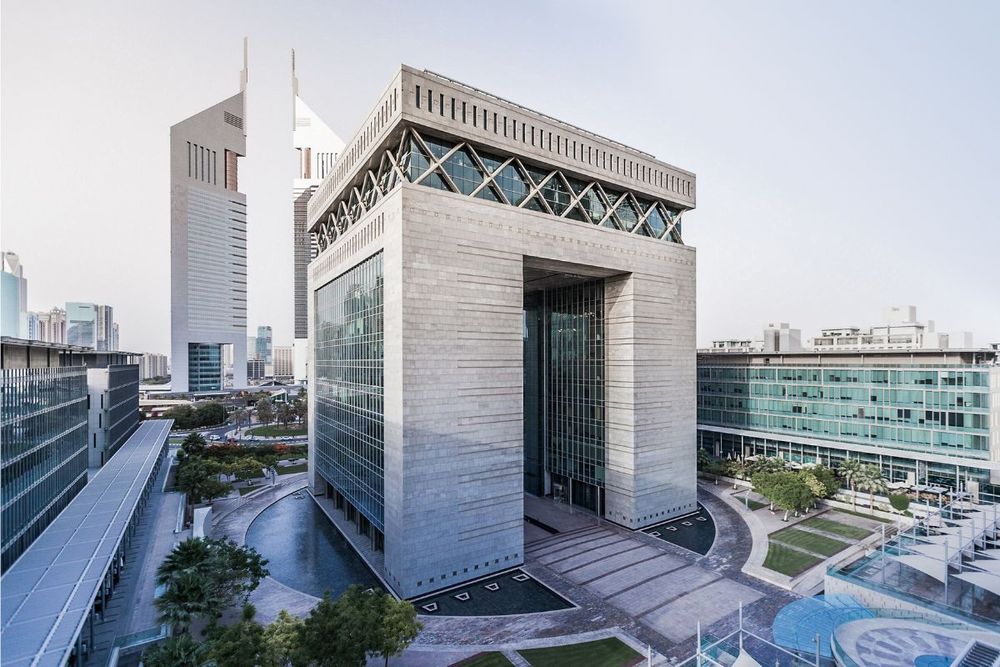Dubai International Financial Centre (DIFC) hosted the second Dubai FinTech Summit (DFS) Dialogues, powered by the Innovation Hub, where heads of 10 leading regional banks and FinTechs discussed the challenges facing the financial sector and deliberated on how the industry can de-risk and build resilient, sustainable financial institutions.
Recent research by Report Ocean indicates that the global FinTech Lending Market was valued at approximately US$573.05 bn in 2021 and is anticipated to grow with a healthy growth rate of more than 27.4% over the forecast period 2022-2029.
Mohammad AlBlooshi, Head of DIFC Innovation Hub and FinTech Hive, hosted the roundtable and noted,
“As an industry predicated on confidence and trust, we are currently seeing the banking sector experience a time of disruption. Given global headwinds, we have an opportunity to build more resilient institutions through collaboration between banks and FinTechs.”
He added,
“Through conveners such as this roundtable and the first-ever Dubai FinTech Summit in May, we are facilitating dialogue and avenues of collaboration for long-standing financial institutions, regulators, and promising entrepreneurs to together map out how the sector can - and should - move forward.”
Despite being recognized as a major competitor to banks, the FinTech sector is expected to double in size from US$135.9 bn in 2021 to US$266.9 bn in 2027, according to DIFC FinTech Hive's 2022 FinTech Report. Additionally, FinTechs have been playing a crucial role in promoting inclusive economic growth in the region, especially as approximately 50 per cent of the MENA region is currently unbanked or underbanked.
However, a unanimous takeaway from all banks at the DFS Dialogue was that both entities are in fact symbiotic.
Sanjay Sethi, Senior Managing Director and Head of Global Transaction Banking at First Abu Dhabi Bank, highlighted the importance of collaboration between financial institutions and FinTechs, stating that it is an age of collaboration and co-creation. He added that through collaboration, entities can embark on a journey of innovative discovery to expand into new geographies, improve product capabilities, grow revenues, or scale or optimize their business faster and more efficiently. He stated that FinTech solutions in transaction banking are growing in agility every day, and FAB will continue collaborating with pioneering FinTechs to deliver impactful advances across the financial industry.
The UAE Central Bank recently announced the implementation of its Digital Dirham digital currency strategy, which promises to be a critical step in the country's payments industry. This development will deeply impact banks, FinTechs, businesses, and customers.
“As such, the synergy between banks and FinTechs proves to be unavoidable as the industry inches towards a cashless economy,”
added AlBlooshi.
Raman Thiagarajan, CEO and Founder of Zenda, a FinTech services provider, emphasised that building an emotional connection with the end consumer is key, just as it is with any tech player.
As customers turn to technology, banks have been forced to adapt traditional trust-building to complement the digitization of banking. Anand Krishnan, Head of Technology at Emirates Investment Bank, emphasised the importance of banks continuing to invest in technology that builds and maintains trust with customers across their entire journey.
Google predicts that the financial services and banking industry will emerge as the primary spender for AI technology in the MENA, making up nearly 25% of all AI investments in the region. Banking tech alone is expected to contribute 13.6% to the region's gross domestic product by 2030.
Mehdi Tazi, Chief Operating Officer at Lean Technologies, noted,
"Although customers still trust banks more than FinTechs due to their size and established reputation, FinTechs excel at streamlining processes during customer onboarding into these larger banks. As a result, we are seeing a marriage between FinTech and banking that enhances the customer's journey, ultimately building trust."
The financial sector is undergoing a transformation with the advent of Web 3.0, revolutionising customer expectations and driving changes in financial services, capital markets, and banking. According to Rakesh Reddy, CEO of Cloud4u, the total transaction value of embedded finance is projected to reach US$7 tn by 2026, which will benefit Platform-as-a-Service (PaaS) providers, making them a significant industry disruptor.
Nilay Singh, Chief Executive Officer of State Bank of India, DIFC, emphasised the need for effective and intelligent adoption of artificial intelligence (AI) through outsourcing and collaboration.
As Dubai prepares for further growth and innovation, policymakers, entrepreneurs, and investors are coming together to enhance inclusive and stable banking solutions in the region. Traditional financial establishments are increasingly optimistic about growing partnerships with promising FinTechs to bridge gaps and stay ahead of the curve. Join the dialogue at the Dubai FinTech Summit, to be held at Madinat Jumeirah in Dubai, where visitors can purchase tickets with early bird prices available until 15 April 2023.
News Source: Emirates News Agency









